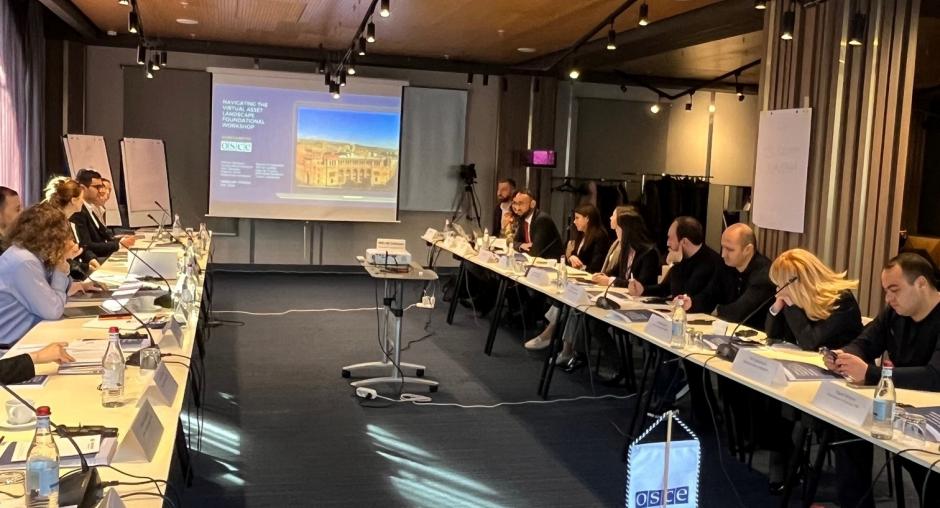OSCE hosts workshop on virtual asset regulation and enforcement for Armenian officials

An introductory workshop on virtual asset regulation and enforcement took place in Yerevan, Armenia from 11 to 13 March. The event, organized by the Office of the Co-ordinator of OSCE Economic and Environmental Activities (OCEEA), brought together 23 participants representing various state agencies to learn more about crucial aspects of virtual asset management and combatting financial crimes associated with cryptocurrencies.
During the workshop, participants engaged in practical case studies, including on the topics of tracing accounts with blockchain analytics and exploring crypto crime trends. Sessions also covered compliance with international standards like FATF's Risk-Based Approach and Moneyval recommendations, along with discussions on risk assessment for Virtual Asset Service Providers (VASPs). More advanced topics covered in the workshop included blockchain-based funding mechanisms and monitoring VASP activities to combat crypto-related crimes, as well as exploring emerging typologies of blockchain-based crimes.
Throughout the workshop, participants actively engaged in discussions, shared experiences, and exchanged best practices to enhance their capacity in regulating and enforcing virtual asset-related laws and policies.
"This workshop served as a pivotal platform for state agencies to collaborate and enhance their capabilities in addressing the challenges posed by virtual assets," said Gurban Babayev, Economic Adviser at OCEEA. "We are confident that the insights gained and the networks established during this event will contribute significantly to our collective efforts in combatting financial crimes in the digital era."
The workshop is part of an OSCE-led extra-budgetary project on “Innovative policy solutions to mitigate money-laundering risks of virtual assets”, funded by Germany, Poland, Romania, the United Kingdom and the United States. The project supports OSCE participating States in building national capacities to mitigate criminal risks related to virtual assets and cryptocurrencies.
